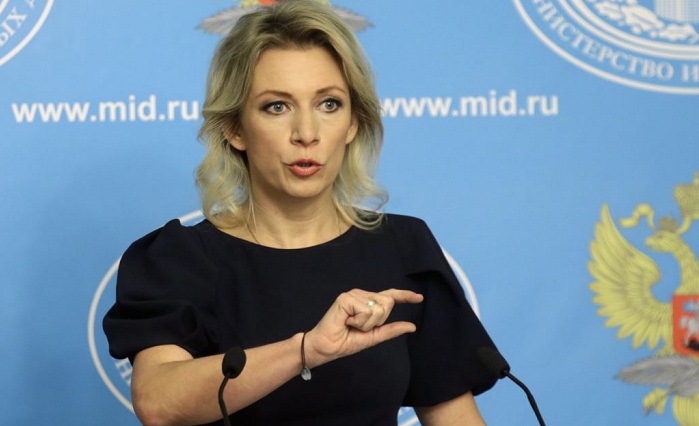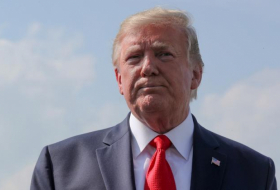`Lavrov held constructive talks with Azerbaijani, Armenian counterparts`

Zakharova noted that the publicly-accessible issues discussed during Lavrov’s talks with his Azerbaijani and Armenian counterparts, Elmar Mammadyarov and Edward Nalbandian respectively, were publicized by the ministry’s press service.
“I have no further information about the discussions on the Nagorno-Karabakh conflict. As you know, this is a very sensitive issue,” Zakharova said, adding. “The talks were very constructive, and the sides had discussions on specific and distinctive ideas aimed at keeping the momentum in talks on the resolution of the conflict.”
The spokeswoman also clarified whether Sergey Lavrov plans further meetings on settlement of the Nagorno-Karabakh conflict.
“Of course, further meetings will take place. However, the schedule is not fixed yet. The settlement of the conflict remains a priority for Russia’s foreign policy. Therefore, contacts will continue in various formats”, she added.
The Nagorno-Karabakh conflict entered its modern phase when the Armenian SRR made territorial claims against the Azerbaijani SSR in 1988.
A fierce war broke out between Azerbaijan and Armenia over the Nagorno-Karabakh region of Azerbaijan. As a result of the war, Armenian armed forces occupied some 20 percent of Azerbaijani territory which includes Nagorno-Karabakh and seven adjacent districts (Lachin, Kalbajar, Aghdam, Fuzuli, Jabrayil, Gubadli and Zangilan), and over a million Azerbaijanis became refugees and internally displaced people.
The military operations finally came to an end when Azerbaijan and Armenia signed a ceasefire agreement in Bishkek in 1994.
Dealing with the settlement of the Nagorno-Karabakh conflict is the OSCE Minsk Group, which was created after the meeting of the CSCE (OSCE after the Budapest summit held in Dec.1994) Ministerial Council in Helsinki on 24 March 1992. The Group’s members include Azerbaijan, Armenia, Russia, the United States, France, Italy, Germany, Turkey, Belarus, Finland and Sweden.
Besides, the OSCE Minsk Group has a co-chairmanship institution, comprised of Russian, the US and French co-chairs, which began operating in 1996.
Resolutions 822, 853, 874 and 884 of the UN Security Council, which were passed in short intervals in 1993, and other resolutions adopted by the UN General Assembly, PACE, OSCE, OIC, and other organizations require Armenia to unconditionally withdraw its troops from Nagorno-Karabakh.














































